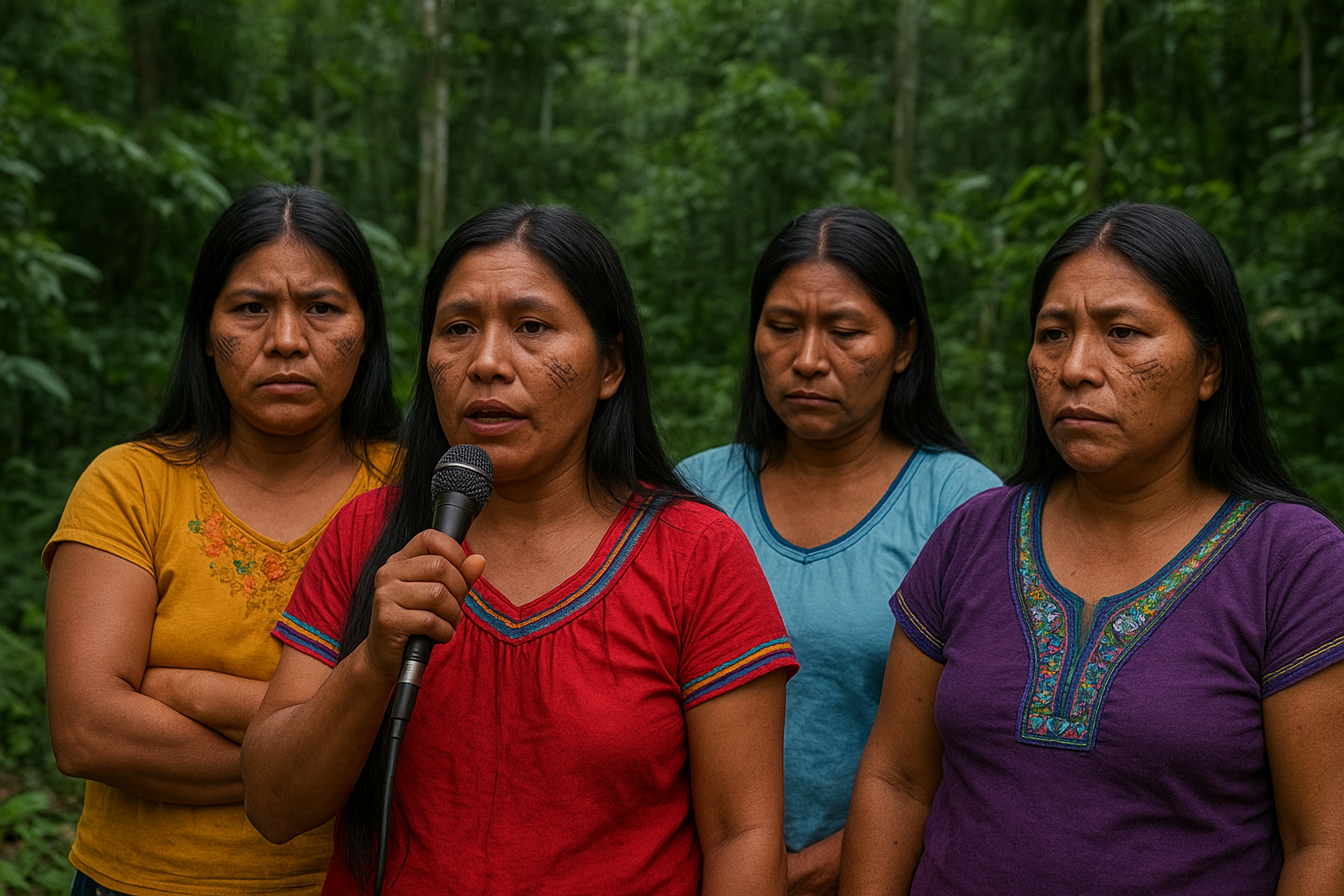Explore Issues
- Arts and Culture
- Decolonizing Thought
- Environmental Justice
- Health
- Languages and Education
- Science
- Social and Gender Justice
- Uncategorized
Filter by Country
-

Women of the Rainforest: Voices Against Violence
In the heart of the Ecuadorian Amazon, where the rainforest is our mother and refuge, indigenous women sustain life, memory, and resistance. They are the guardians of our territories, of traditional medicine, and of the word. That resistance, however, faces silent and brutal violence every day; a violence interwoven with patriarchy, structural discrimination, and neglect…
-

Tribes Lead the Way to Revive Regional Salmon Runs
This article first appeared on smea.uw.edu/currents, a student-run blog about pressing environmental issues, hosted by the University of Washington School of Marine and Environmental Affairs, “Tribes Lead the Way to Revive Regional Salmon Runs” By George Thomas Jr. We are all salmon people, and we know what we need to do. Such was the message…
-

Bolivia: Indigenous and Campesino Organizations Reconvene, Reject their Movements’ Politicization
In public communiqués, several indigenous and peasant organizations in Bolivia summoned the social, environmental and indigenous movements, which suffered divisions after several years of politicization under the government of the Movement to Socialism (MAS) party and Evo Morales, to continue to resist extractivist policies of the old and current government. After proclaiming herself president of…
-

25 Years of Climate Summits Without Results: Young People and Indigenous People Express Their Exhaustion
After 25 years of hearing broken promises and empty rhetoric proposals, young people and indigenous peoples raised their voices at the Climate Summit in Madrid (COP25) to express their tiredness and anger at the inaction of governments and the leading economies of the world faced with the degradation of the planet by the climatic change.…
-

Uninvited: How A Wampanoag’s Stand Spurred the Day of Mourning in Plymouth
High on a hill, overlooking the famed Plymouth Rock, stands the statue of our great Sachem, Massasoit. Massasoit has stood there many years in silence. We the descendants of this great Sachem have been a silent people. The necessity of making a living in this materialistic society of the white man caused us to be…
-

Singing Hip Hop in Native Languages to Reclaim Identities
Musical expressions are liberating and help build resilience. Some musical expressions have managed to unleash social change and others, to shape identities and resistance, but above all music is contributing significantly to keeping Native languages and expressions alive. Indigenous languages are living, active languages that grow and are renewed, for example, when young people take…
-

Water, Mexico and Its Many Hidden Names
By Yásnaya Elena A. Gil,* presentation at the Mexican Congress on February 28, 2019, to mark the international year of indigenous languages. Nëwemp “the place of water”, mixe. Giajmïï “about water”, chinateco. Nangi ndá “the land in the middle of water”, mazateco. Kuríhi “inside water”, chichimeco. Nu koyo “humid town”, mixteco. It was the name…
-

Brazil: Planned Extermination of Indigenous People in Voluntary Isolation
From Awasqa Editors: Deep in the Amazon rainforest live one of the most vulnerable populations: indigenous tribes in voluntary isolation, or uncontacted tribes that have chosen to live away from civilizatory colonial advances of “modern” society. Their exact population is unknown but it spans across several borders in Colombia, Ecuador, Peru, Brazil, Bolivia, and other…
-

A Renewed Legal Battle Against DAPL
By Mike Faith, Chairman of the Standing Rock Sioux Tribe. Originally Published by Standing Rock Sioux Tribe In 2016, the Standing Rock Sioux Tribe’s peaceful and principled opposition to a new crude oil pipeline crossing our ancestral homelands and our water source captured the world’s attention. Although the Dakota Access Pipeline (DAPL) has been operating…